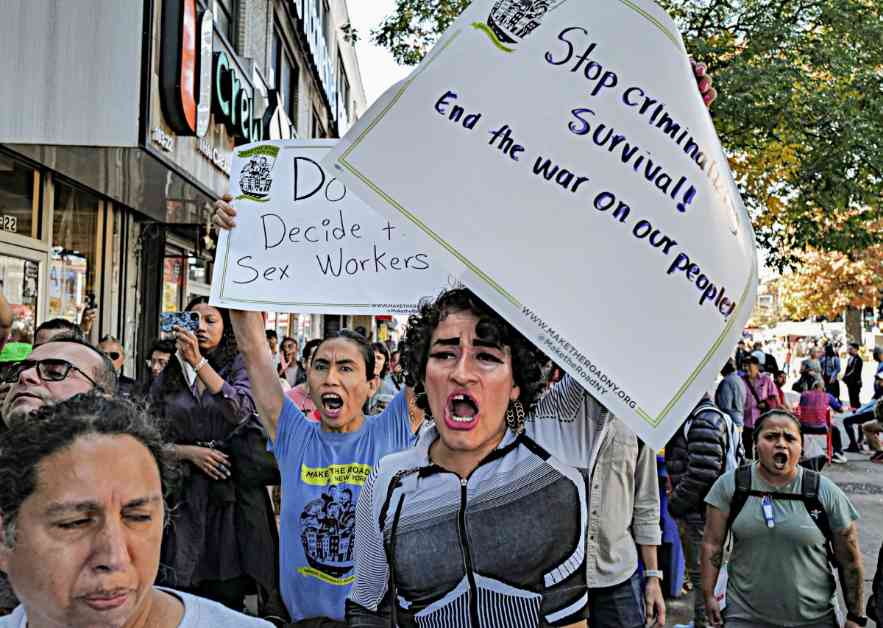Late-night raids and crackdowns on prostitution and illegal vendors along Roosevelt Avenue in Queens have sparked resistance within the community. The recent closure of an alleged brothel on Roosevelt Avenue as part of the “Operation Restore Roosevelt” initiative has been met with mixed reactions from residents and advocates.
While some locals have expressed relief at the shutdown of illicit businesses, others, including sex workers, street vendors, and immigrant advocacy groups, have criticized the operation as violent, racist, and harmful. They argue that sex work, though illegal, is a legitimate form of employment for many individuals, especially those who are marginalized and vulnerable.
During a rally at Corona Plaza, advocates voiced their concerns about the heavy police presence in the area, which they believe is displacing street vendors and targeting sex workers. They emphasized the need for investment in communities rather than increased criminalization of vulnerable populations.
Street vendors, in particular, have raised issues about policing and ticketing practices that hinder their ability to make a living. Members of Make the Road New York have called for more resources and support for vendors, rather than punitive measures.
The NYPD has acknowledged these concerns and stated that they have been working with vendors to help them obtain proper licenses. However, they maintain that addressing issues of prostitution and trafficking is also a priority, especially when it occurs near schools and residential areas.
Despite the crackdowns, sex workers and advocates have vowed to continue their work on Roosevelt Avenue, resisting efforts to remove them from the area. This defiance was evident when former state Sen. Hiram Monserrate was confronted by sex workers and their supporters while attempting to criticize their trade.
The ongoing tensions between law enforcement, residents, and sex workers highlight the complex social issues surrounding prostitution and illegal vendors in the community. As the city grapples with addressing these challenges, finding a balance between enforcement and support for vulnerable populations remains a key concern for all stakeholders involved.

